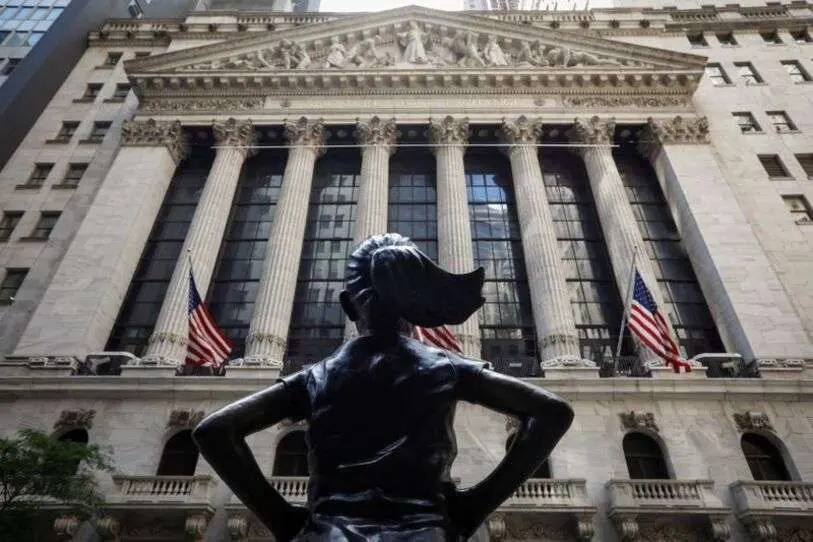The rebellion of the Wall Street lambs

It is a cliché that when the predators of the New York Stock Exchange smell the blood of a badly wounded victim they pounce on it until they relentlessly devour it with their teeth. They are the so-called wolves of Wall Street, profusely and starkly glossed over in numerous films and television series. These beasts have specialised in detecting companies that are lagging behind, with their products disappearing from the public's appetite because of obsolescence or because they are becoming less and less competitive with their rivals. How are they doing this? By borrowing the company's shares to sell them on the stock market. They assume, and this is almost always the case, that the value of those shares will plummet in a matter of days or even hours or minutes, allowing them to buy them back at a much cheaper price. Their profit is the difference between the sale price and the purchase price, returning the borrowed shares in the process. Along the way, the badly wounded company has been forced to close down or go bankrupt, with the corresponding social consequences. This way of operating downwards is one of the preferred methods of some of the large investment funds, a system prohibited or very limited in countries such as Spain, but fully in force in the United States.
The persistence of this routine has led to the common imagination that Wall Street is seen as a casino where only the very professionals of speculative gambling win, and as a symbol of certain losses, or even ruin, for those who dare to approach the dream of multiplying their profits by betting on the medium or long-term prosperity of certain companies.
Well, for once at least, the lambs of the New York Stock Exchange did not resign themselves to their fate in silence and decided to stand up to the wolves. Three were the main victims: the video game company GameStop, the movie theatre chain AMC, and the technology company Blackberry. All three were not so long ago leaders in their respective sectors, but had been languishing for some years in the face of the unstoppable advance of their new adversaries.
None of the three firms announced any major shake-ups, unexpected revolutions in their production processes, or takeovers or mergers with any of their giant competitors. And yet, in a matter of a few days, GameStop's shares soared 400%; AMC's shares soared 300% while Blackberry's shares soared more than 100%. All this as a result of several thousand small shareholders, through a forum called Reddit, supposedly betting not only on the hypothetical viability of these companies but also on their allegedly bright future, at least in appearance.
Large funds such as Melvin Capital and Citron Reasearch, whose business is bigger the more companies plunge on the stock market, had to close short positions to contain the bleeding caused by the huge rise in stocks, when they had already lost more than 10 billion dollars in just two days.
To achieve their aims, the thousands of small shareholders grouped on the Reddit forum used the Robinhood application, set up precisely to facilitate access to the stock market for individual investors, allowing them to make their transactions free of charge. But the upheaval was of such magnitude that the Securities and Exchange Commission (SEC) forced Robinhood to restrict the volume of trades when volatility soared uncontrollably. A manoeuvre denounced by several US congressmen, both Democrats and Republicans, who are threatening a commission of enquiry, on the grounds that the limitations imposed on Robinhood clash with the liberality with which hedge funds operate.
The stock market turmoil in the world's largest financial centre also affected many other share prices, as stock funds had to compensate for their heavy losses by selling shares in other, stronger companies. In short, it was the first time that there has been a telluric movement of stock prices from bottom to top rather than the other way around, the classic image of the crash and collapse set in that volatilisation of 1929, the starting point for the Great Depression. It also breaks with the inertia of action of many large funds, and gives some hope to small shareholders, the perpetual paymasters of all parties.
It will also go down in history that among the animators of this great little cataclysm was also Elon Musk, founder of Tesla and disputing with Jeff Bezos the primacy of the richest people in the world. His boost to the meteoric rise of GameStop and AMC shares has certainly increased his profits, but the heart of his battle was to deliver a financial blow to the bearish funds that bet on the ruin of others. Everything will undoubtedly be redirected, but it is a warning that the days of "casino capitalism" are numbered.

